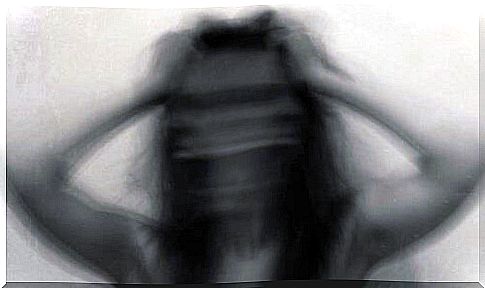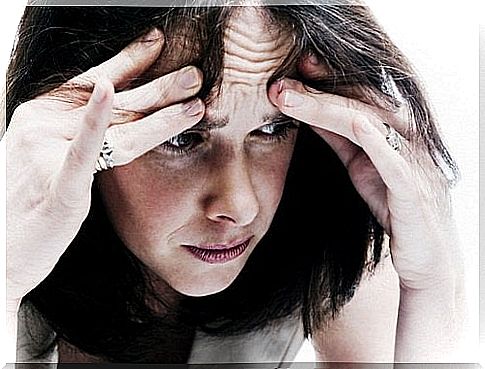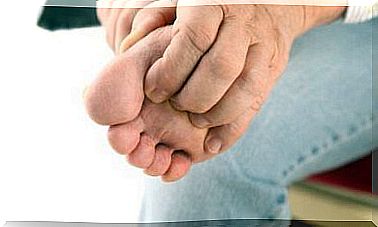7 Types Of Anxiety: The Workhorses That We Must Control
We must learn to manage our levels of anxiety so that they do not become a pathology that can harm our mental health and even physical.

Anxiety Disorder is, without a doubt, that fierce Trojan horse that accompanies many people during certain times and sometimes for a very long time.
However, when we talk about this psychological dimension, often we see it as a single pattern, when in reality there are different types, origins and personal situations.
From the psychological field specialists differentiate 7 types.
However, first of all, we must know a fundamental aspect: anxiety is a normal emotion.
Adequately managed, it is the one that governs our psychological mechanisms to face these situations of uncertainty where we must give the best of ourselves.
However, often our own fear overtakes us and the brain unleashes a series of processes in which we totally lose control.
Nevertheless, it is important to always remember as soon as we feel that we are losing control and the circumstances are beyond us, that we will need the help of a specialist.
1. Generalized anxiety disorders

Generalized anxiety disorder is the most common type of anxiety. It affects millions of people, and all of them, at some point, can experience this mental tension, this nervousness that, on the face of it, does not have a specific origin.
- It is like living on the edge of an abyss, of a window before which opens the deepest uncertainty and the most agonizing void.
- We could say that there are several triggers. A job interview, having to talk to someone, changing a habit, doing something new …
However, more than a concrete fact, generalized anxiety disorder has a root problem: living forever worried.
Here are the symptoms:
- Constant worry, irritation, nervousness or loss of control.
- Fatigue, constant drops in energy.
- Tense muscles, especially in the back, neck and shoulders.
- Difficulty concentrating on tasks or activities.
- Obsession with negative thoughts, catastrophic reasoning.
2. Social phobia, cause of anxiety
In this second case of anxiety, the center of attention of unhappiness, worry and fears are the social scenarios.
In this category fall people who cannot stand spaces with crowds, especially if they have to perform a particular task. Speak in public, speak in a debate, a presentation …
The symptoms would be as follows:
- Feeling of fear and vulnerability in front of people or unfamiliar situations.
- Obsession with feeling observed and judged.
- Cold sweat, stuttering and emptiness in the stomach when we are introduced to someone new or when we are in a place we do not control, in front of various people.
3. Panic attacks

The panic attack is a very weakening anxiety disorder. These are the moments during which we have the clear feeling that we are going to die, that we are going to suffer from a heart attack, an accident or that someone is going to hurt us.
We are talking, this time, of a feed back disorder. We know what troubles and panic attacks are, and we are afraid to experience them again.
Panic attacks are intense physical and mental sensations that develop because of stress and also, although it seems odd, for no obvious reason.
It is something very complex that only people who have suffered from it can understand.
The symptoms would be as follows:
- Very fast heartbeat.
- Excessive sweating.
- Falling asleep or general weakness in the body.
- Depersonalization (feeling that we are outside of ourselves).
- Difficulty in breathing.
- Sensation of fainting or dizziness.
- Pain in the chest or stomach.
- Digestive disorders.
4. Agoraphobia
We all know what agoraphobia is. The fear of the great outdoors, of going beyond certain known limits or of entering unknown places.
So, we need to understand that just because we have agoraphobia doesn’t mean we can’t get out of our homes.
Many people suffering from this type of anxiety limit themselves to never leaving their personal journeys: home-work-supermarket.
It should also be noted that agoraphobia is also accompanied by panic attacks. Being in an open space, they suffer from the symptoms described previously.
5. Specific phobias that cause anxiety

We all have a specific kind of phobia: fear of spiders, clowns, unpleasant noises, thunderstorms, knives.
These fears are considered normal, and are so until the mind begins to become obsessed with those aspects that transform our quality of life.
We stop going outside for fear, for example, of meeting spiders, that it rains and that lightning strikes, that a dog will bite us …
The symptoms would be as follows:
- Excessive and constant fear of something in particular.
- Immediate sensation of threat or attack.
- Complete inability to control your fears, even if you know they are irrational.
- Live with complete restriction of our daily routine.
6. Post-traumatic stress disorder (PTSD)
In this life, our security is never guaranteed, as is the fact that we will always be respected, loved or protected.
The traumatic facts of a childhood leave their mark. But also accidents, assaults, losses, witnessing shocking facts. As well as all these events that transform us and hurt us internally and externally.
The symptoms would be as follows:
- Relive the trauma: The most common symptom of post-traumatic stress disorder is reliving the shock all the time.
Often, it only takes one trigger for us to remember this fact from the past and relive all the pain. - Another factor to consider is recurring anxiety. This traumatic fact may subside over time, but has changed us permanently.
- Anxiety will remain present through many details, in many daily areas: insomnia, fatigue, difficulty concentrating …
7. Obsessive Compulsive Disorder (OCD)
Obsessive Compulsive Disorder or OCD can be a very destructive anxiety disorder.
People who see it from the outside never manage to understand why someone continues a series of rituals, manias, repetitive behaviors which, on the face of it, make no sense.

It is important to differentiate between compulsions and obsessions because they are not all the same. These would be the nuances which differentiate them and which, no doubt, are worth knowing.
- Obsessions: Obsessions are concerns that revolve around a specific thought (almost always negative) that the person cannot get rid of (they will hurt me, they will abandon me…).
- Compulsions: compulsions, when they are, are based on behavior. They are not thoughts, but the translation of these under a conduct that serves as a mechanism to relieve fear.
Closing a lock 5 times makes me feel more secure, washing my hands very often will prevent me from getting infected, but also give me more confidence in myself.
To conclude, the dimensions reflected here belong to clinical categories that require a very specific type of treatment depending on their origin.
Anxiety, if it does not reach its extremes, will simply be a normal emotion that comes and goes and that we need to deal with appropriately.









